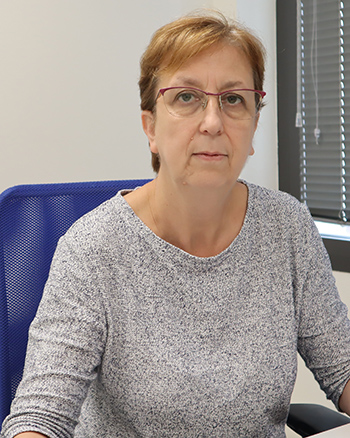 What does the Church do for employment?
What does the Church do for employment? HOAC inaugurates new stage, presidency and priorities for the future
HOAC inaugurates new stage, presidency and priorities for the futureOn November 6, the Workers' Brotherhood of Catholic ActionThe year of celebration of the 75th anniversary of the birth of this movement of Catholic Action for the Pastoral Care of Work and of the encounter between the Church and the working world is coming to an end. A time that, from this movement, they have lived as an extraordinary moment of grateful memory to the past, to project the future, in the committed experience of our present.
During this year, in addition, the following were elected María Dolores Megina Navarro as the new president of HOAC. Technician of labor prevention and partner of a cooperative of the socio-sanitary sector and militant of the diocese of Jaén, Maru, as she is usually called, has granted an interview to Omnes on the occasion of the closing of this 75th Anniversary that puts again on the front page the need of this movement in the present Church.
- You have recently been elected president of HOAC. How have you experienced this 75th anniversary year?
With great joy, of course. It has been a year to celebrate this time of encounter between the Church and the working world. For this reason, we remember our history with gratitude and give thanks for having discovered Jesus Christ in this suffering reality of the working world, for the love shown to each person in the world of labor. We also give thanks for the generous dedication of so many activists who have spent their lives being present in the struggle for the dignity of the working world.
We give thanks for the HOAC formation experience, which has helped us to deepen our personal and Christian being and, of course, for being and feeling sent as an ecclesial community at the service of the world of workers and labor.

- An anniversary is always a moment of examination and impulse, has it also been for HOAC and its militants?
Of course. The fundamental task of HOAC is to form Christian militant workers. Our faith and our formation lead us to contrast faith with life, to be in a constant process of revision, conversion and tension about how we have to evangelize in the here and now the world of workers and labor, how to be incarnated in the peripheries of the working world.
But it is certain that this celebration, this giving of thanks becomes for us a renewal of our fidelity to continue being Church in the working world and the working world in the Church. This also impels us to remain committed to the struggle for justice and fraternity, in a way that makes life in dignified conditions possible for all persons and families in the world of labor and work; and, on the other hand, it leads us, from our ecclesial being, to collaborate so that the Church as a whole grows in this service to the impoverished and in defense of the dignity of work and dignified work.
- We are going through a time of socio-economic crisis that especially affects workers, in this sense, what are the challenges for the future of HOAC? And its Christian commitment, how is it updated today?
Just when the most impoverished working-class world had not recovered from the consequences of the 2008 crisis, the pandemic has come to further deepen this situation of impoverishment, precariousness and exclusion. In our analysis of reality we see that the weakest are those who pay the greatest consequences in every crisis. That is why we say, with Pope Francis, that this system cannot be tolerated. We need the economy to put people at the center, knowing that affirming the dignity of the person means putting their needs and rights first, especially those of the most impoverished, excluded and precarious in this world of work.
In this sense, defining our challenges leads us to say, together with the ITD (initiative Church for decent work) that now more than ever we demand that work be dignified and decent. This leads each militant to remain incarnated in this reality to be a proclamation of the Gospel and to denounce situations that go against the dignity of people. In HOAC we speak of keeping in mind in our actions, in our personal commitment and in our Apostolic Community Work, these four keys:
- To accompany people's lives, to live their joys and anxieties with them.
- To collaborate in a change of mentality so that they can discover what is happening to them and why it is happening to them. To discover what are the causes that lead them not to have decent living and working conditions and to act accordingly.
- To collaborate in changing institutions so that they serve the needs of people, the common good.
- Collaborate to build and give visibility to alternative experiences in the ways of being and working (in political life, in business, in the way of understanding solidarity...).
-How do you see the commitment of the militancy? Is there enthusiasm for the future?
HOAC is currently in a stage of great maturity. All this time of walking together, of learning from each other, of being an incarnated community has led us to deepen our spirituality and our formation in order to qualify our commitment. We have improved and updated our means of communication and put them at the service of this task. In the coming months we will begin to prepare our next general assembly to be held in 2023 and from which we will draw new challenges and ways to make ourselves present in the reality of the world of labor and work.
We live all this as a time of grace, being aware that it is the Spirit and the community that sustain us. For us, our illusion and our challenge is to continue announcing Jesus Christ as a proposal of salvation, liberation and humanization.











